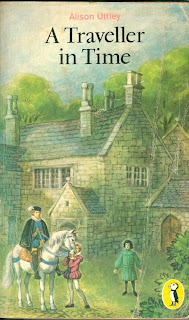 Heartiest congratulations to Hazel Campbell for being awarded a Silver Musgrave Medal from the Institute of Jamaica for her 'contribution to children's literature and the encouragement of new writers', as indicated in today's Daily Observer. (Function will be held in early October). This is wonderful news. As you may know, Hazel is my great friend and fellow children's writer. She is a really talented writer, with a true sense of story, and the ability to bring humour into her writing, something which children love, and which in itself is a special skill. She is also a brilliant editor of children's' stories; she edits with sensitivity for the story and respect for the writer. That is, while adhering to good practice, tightening the story, (essential for all writers who are convinced that each 'present story' is a prized possession), she nonetheless allows the writer's own voice to be heard. It is no surprise therefore that she is the editor of the Sand Pebbles Pleasure Series, published by Carlong Publishers, Jamaica. In this series she has not only been midwife to the stories of Jamaican writers but also for the work of writers from
Heartiest congratulations to Hazel Campbell for being awarded a Silver Musgrave Medal from the Institute of Jamaica for her 'contribution to children's literature and the encouragement of new writers', as indicated in today's Daily Observer. (Function will be held in early October). This is wonderful news. As you may know, Hazel is my great friend and fellow children's writer. She is a really talented writer, with a true sense of story, and the ability to bring humour into her writing, something which children love, and which in itself is a special skill. She is also a brilliant editor of children's' stories; she edits with sensitivity for the story and respect for the writer. That is, while adhering to good practice, tightening the story, (essential for all writers who are convinced that each 'present story' is a prized possession), she nonetheless allows the writer's own voice to be heard. It is no surprise therefore that she is the editor of the Sand Pebbles Pleasure Series, published by Carlong Publishers, Jamaica. In this series she has not only been midwife to the stories of Jamaican writers but also for the work of writers from  the rest of the Caribbean who have published with Carlong.
the rest of the Caribbean who have published with Carlong.Hazel's two latest books are Bernie and The Captain's Ghost (Carlong Publishers, Jamaica, 2010) a mystery and adventure, and A Goatboy Never Cries (LMH Publishing Ltd., Jamaica, 2009) detailing love for a pet and family relationships. My all time favourite, however, is The Challenge Match in the Get Caught Reading Series (Ginn, UK, 2007, also available from Carlong). Hilarious! Cricket anyone!

Hazel often teaches a children's writing course at the Creative Arts Centre, UWI. So check out the course and get the books. Well deserved award, Hazel! I am delighted for you. And of course, we also laud the Institue of Jamaica for recognising an author of children's books and children's writing.






 He is politely impressed and says, "At primary?"
He is politely impressed and says, "At primary?"